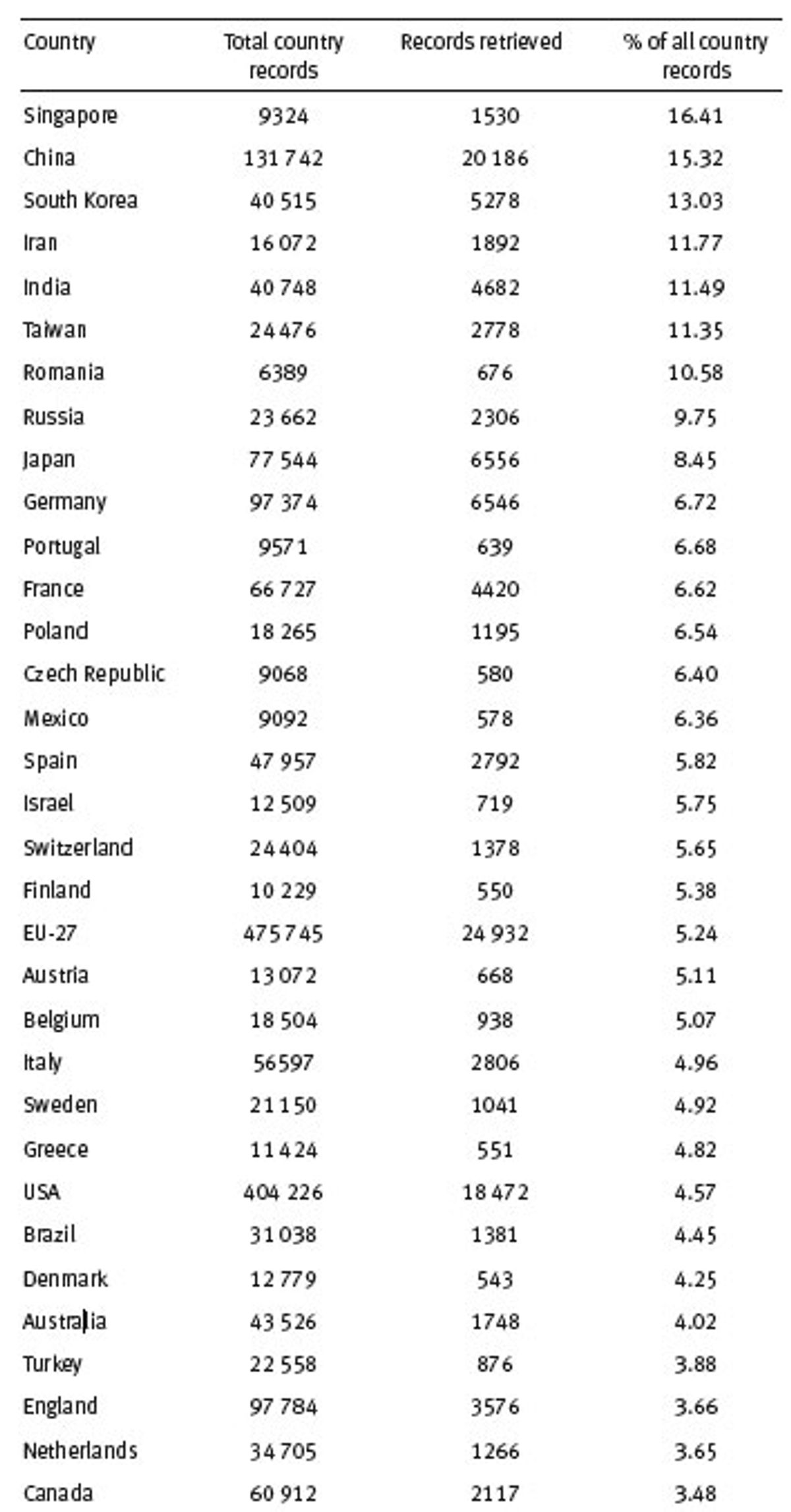Nanowerk, in its most recent Spotlight piece, has highlighted the work of two UC Davis researchers in analyzing the spread of nanotechnology research by using search terms within a scientific database that accesses over 10,000 scientific journals.
Minghua Zhang, a professor in Civil and Environmental Engineering at UC Davis, and Michael L. Grieneisen, a researcher in Zhang's AGIS Lab, have published their findings in the journal Small, in an article entitled "Nanoscience and Nanotechnology: Evolving Definitions and Growing Footprint on the Scientific Landscape."
The Nanowerk article points out that Zhang’s and Grieneisen’s work is based upon a Georgia Tech project called “Refining search terms for nanotechnology” that was published in 2008.
The UC Davis researchers added some carbon nanostructure search terms to the list—graphene, fullerene, buckyball—and excluded a few more terms from the search that may have had a “nano” prefix but weren’t really related to nanotechnology, such as “nanosatellite.” They ran the updated search terms through Web of Science Database (WoS) for the years from 1991 to 2010 and voilà.
The results showed the top five countries in terms of records were:
- China (20 186)
- USA (18 472)
- Japan (6556)
- Germany (6546)
- South Korea (5278)
I am really only slightly surprised by these figures. Mainly, I was initially surprised that China was at the top of the list. Then I took a look back at where UC Davis researchers had done their search and where the Georgia Tech folk had decided to focus their queries.
The WoS queries I imagine spread a much wider net than Georgia Tech’s search through “key journals.” I don’t want to malign anyone here, but I think it is altogether possible that papers published in journals outside of the top publications might rack up a lot query hits but mean little in terms of actual scientific impact.Dexter Johnson is a contributing editor at IEEE Spectrum, with a focus on nanotechnology.




